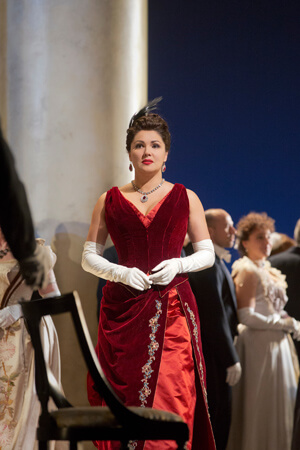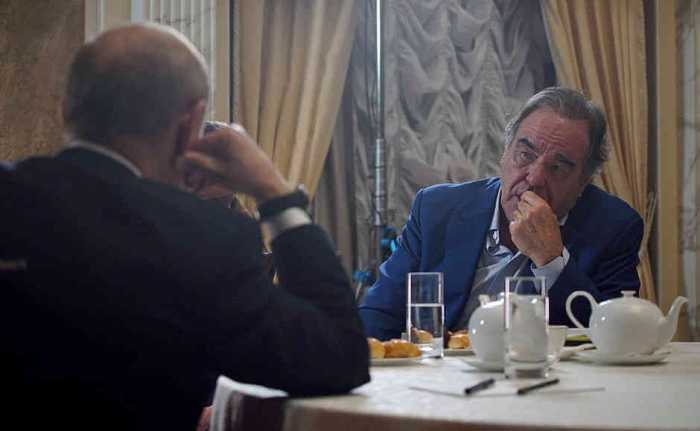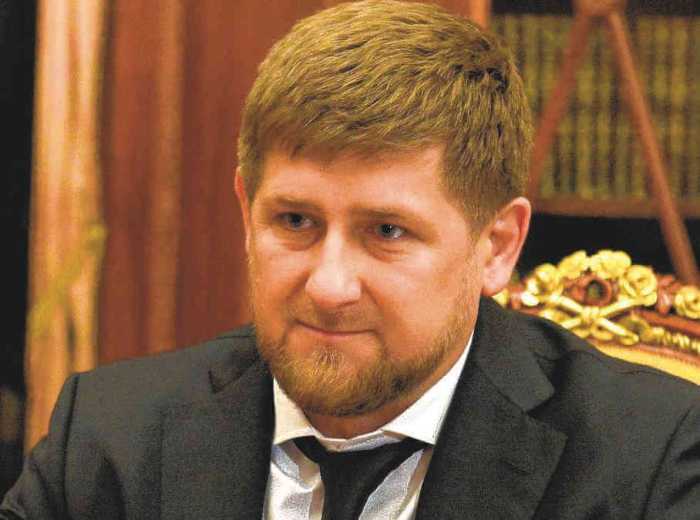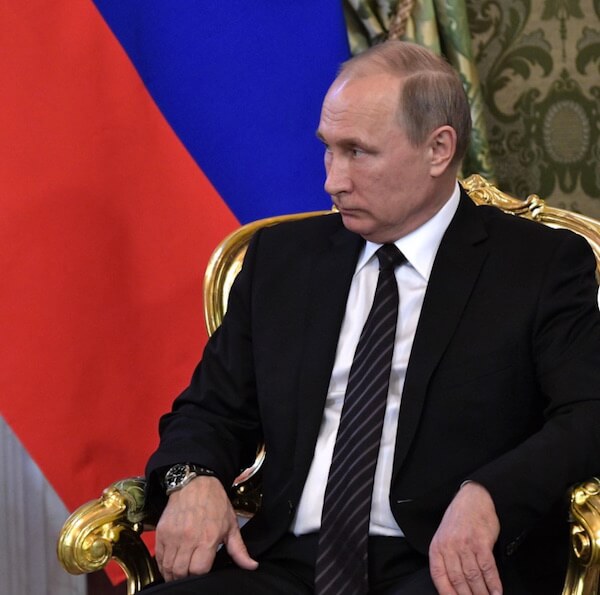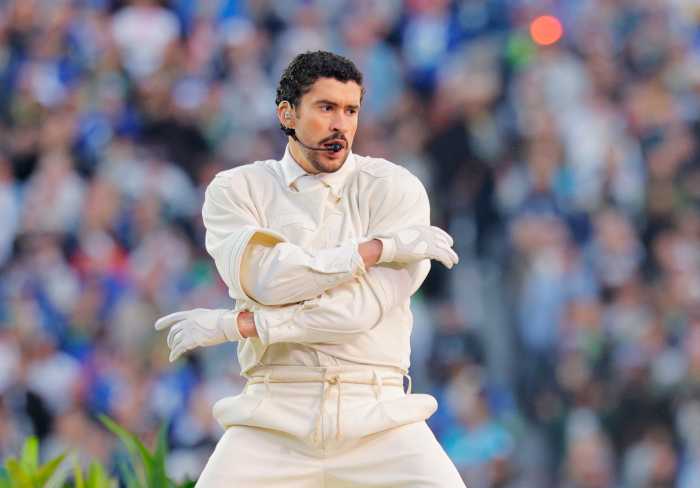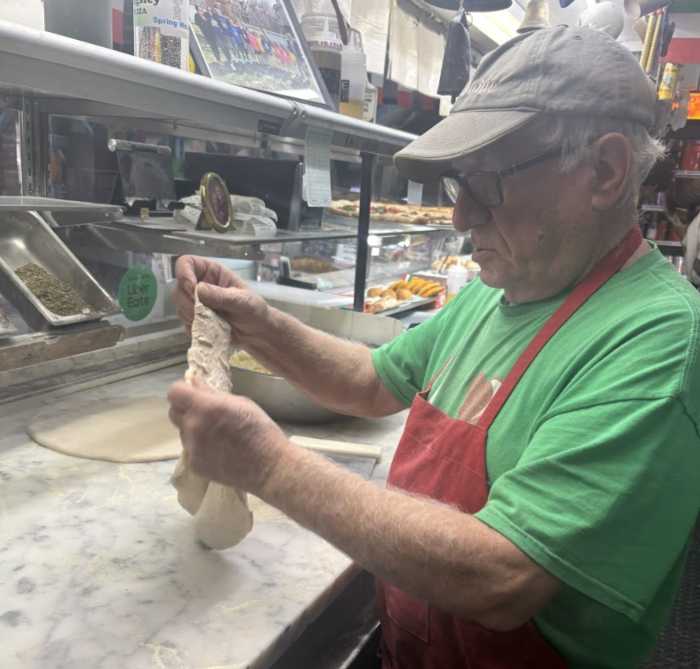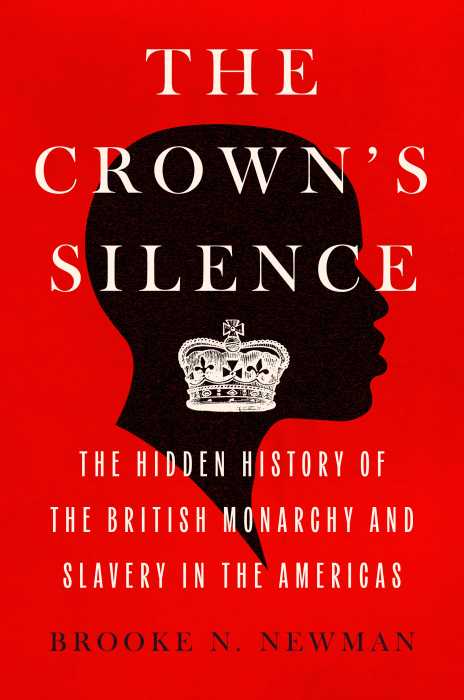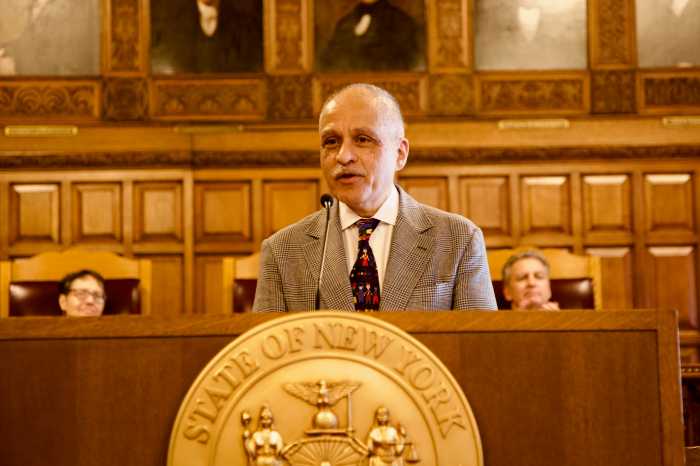Anna Netrebko as Tatiana in Tchaikovsky's “Eugene Onegin.” | KEN HOWARD/ METROPOLITAN OPERA
At the opening of the Metropolitan Opera season, political drama attempted to upstage music drama. LGBT activists petitioned Peter Gelb and the Met to dedicate the September 23 gala opening night of gay composer Piotr Ilyich Tchaikovsky’s “Eugene Onegin” –– starring two Putin supporters, soprano Anna Netrebko and conductor Valery Gergiev –– to the Russian LGBT citizens oppressed by Putin’s anti-gay legislation. Gelb declined to do so, stating the Met has never in its 129-year history dedicated a single performance to a political or social cause.
Before the performance, Queer Nation staged a rally in Lincoln Center Plaza while operatives planted in the Met audience shouted slogans before the curtain rose. The audience agitators were quietly escorted from the theater without resistance and, despite a visible police presence in the plaza, the protesters avoided confrontation or arrest. Both the Met and Queer Nation got some publicity. With the first chords of Tchaikovsky’s prelude, the evening moved from political to musical matters.
Russia-themed evening featuring gay Tchaikovsky draws fire for headlining Putin supporters
The production was a dreary British import, a coproduction with ENO that premiered in London in 2011. Recovering from surgery, the original director, Deborah Warner, entrusted the stage direction to her longtime artistic partner, the celebrated Irish actress Fiona Shaw. Due to prior commitments, Shaw left before the final rehearsals.
Tom Pye’s sets are an uneasy mixture of starkly stylized unit sets combined with fussy representational realism built on an elephantine scale. All three scenes of the first act were set in the same glass-walled sun porch. It worked well enough for the first scene set outside the Larin estate, but its return with minimal set dressing as Tatiana’s bedroom proved dramatically and visually absurd. The second act has an appropriately homey ballroom for Tatiana’s birthday party and a superb wintry outdoor vista for the fatal duel. A massive marble colonnade provides the background for Act III’s St. Petersburg court ball, and a snowy outdoor park for Onegin’s ultimate confrontation and rejection. This change of setting makes dramatic sense since I always felt it was indiscreet for Tatiana, now Princess Gremina, to receive an attempted suitor privately in her parlor.
As for the stage direction, it was a mixture of deliberate oddities (hunting rifles rather than dueling pistols for the Act II duel, a peasant girl thrown around in Act I’s peasant song) and comfy “Masterpiece Theater” predictability. Warner has a predilection for psychologically contradictory, thinking-out-of-the-box physical business (a King Richard II who kisses Bolingbroke before banishing him, a Medea who giddily cuddles Jason –– both played by Shaw). Here, Onegin kissed Tatiana casually after coldly rejecting her. It seemed out of character (a kind of mercy fuck, perhaps?) but the business returned later with chilling dramatic irony –– and an anti-musical added pause. The previous Robert Carsen production looked somewhat lost and spare on the vast Met stage but its poetic quality of suggestion achieved more with less.
Neither lead dug much below the surface acting-wise. The earthy, impulsive, sensual, and extroverted Netrebko as the shy bookish dreamer Tatiana and the boyishly charming, approachable Mariusz Kwiecien as the coolly superior, ironic Onegin seemed temperamentally miscast. The canny and charmingly frank Netrebko confessed this in her September Opera News profile: “I’m sorry –– at the end, I would fuck the guy! So I have nothing in common with Tatiana –– only language!” She worked hard to subdue her vivacious personality in Act I but was far more convincing as the sophisticated lady of Act III. Vocally, however, Netrebko is in her glorious full prime. Her lush, ruby-toned lyric soprano pours out freely throughout the range, easily floating or expanding according to the musical phrase.
Kwiecien’s moody Onegin initially lacked aristocratic hauteur and mystery but he also improved in Act III, when Onegin becomes more directly emotional. When not pushing for extra volume, the Polish baritone’s velvety sound was seductive, and he capped his Act I “lecture” to Tatiana with a lovely piano high note.
Tenor Piotr Beczala was a golden age Lensky, his silvery tenor blending lyricism with heroic ring. Lensky’s anger and despair in Act II were acted with vivid detail. Alexei Tanovitski as Prince Gremin looked young, healthy, and sturdily handsome, but his foggy, unsteady bass sounded old and tired –– ideally it should be the other way around. John Graham-Hall’s deliberate choice of a reedy character voice as Triquet made dramatic sense but a musical trial of his ariette –– bring back Michel Sénéchal!
As Olga, Oksana Volkova’s muffled mezzo lacked the sparkle of her lively stage demeanor. Returning veteran mezzo-contraltos Elena Zaremba as Mme. Larina and Larissa Diadkova as Filippyevna ruled the stage with masterful authority despite the brevity of their roles.
The quicksilver emotional volatility of Tchaikovsky’s score eluded Gergiev. Leaden tempos, muddied orchestral textures, and ragged ensemble persisted all night.
The next evening brought the return of James Levine to the Met podium after a two-season absence recovering from injury. He was greeted with a long standing ovation from a relieved and delighted Met audience. Despite being confined to a wheelchair that has to be hydraulically lifted up to the podium, Levine seems totally reinvigorated from the waist up. His conducting of Mozart’s “Così fan tutte” scintillated with musical energy and vitality from the first note to the last. Tempos bounded forward while each singer received minute care and attention.
Sadly, the 1996 Lesley Koenig production, here restaged by Robin Guarino, has lost all dramatic interest and bite. Koenig’s “Così” looked like a sunny picture postcard but had a dark core. Don Alfonso was a bitter misanthropist manipulating the quartet of lovers into his own disillusioned view of life and love. All four lovers ended the evening at odds with themselves and each other. Despina felt angry at being duped into aiding a nasty degrading ruse. No return to happiness was possible.
Now, Don Alfonso is just another genial avuncular buffo, sung with native diction but limited voice on top and bottom by Maurizio Muraro. The idealistic Fiordiligi and flighty Dorabella are now interchangeable, undifferentiated ditzes who go back to their original partners with little thought. Susanna Phillips, in what is planned as her star-making season, is a girl-next-door Fiordiligi whose softly attacked bottom notes and soft-edged coloratura missed the opera seria parody in “Come Scoglio.” Her luscious radiant full lyric soprano bloomed in a movingly sung “Per pietà” capped by a respectable trill that eluded her previously. Isabel Leonard’s dark, taut mezzo lacked sparkle and flexibility as her sister Dorabella. Danielle de Niese was certainly a high energy, theatrically vivid Despina but her incessant mugging started to grate on the nerves. The maid’s lowish tessitura highlights her pleasing middle range, only lightly touching the scratchy upper register. Rodion Pogossov’s attractive but unimposing baritone put over Guglielmo with comic verve and panache.
The most finished artist onstage was Matthew Polenzani as Ferrando. Despite an announced cold, he offered elegant phrasing in “Un Aura Amorosa” and made musical sense of his demanding second act arias despite some vocal fatigue.
An onstage happy ending seemed appropriate to this occasion when a beloved musical figure returned home where he belonged in full command of his art.

